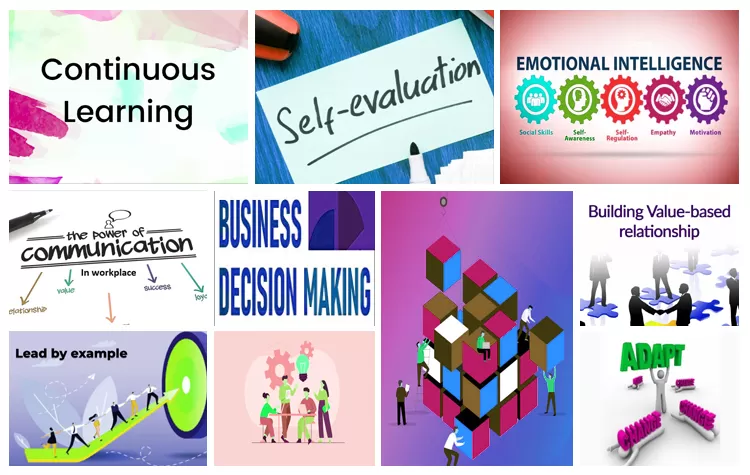Developing leadership skills is of paramount importance as far as career moves and success levels in any venture are concerned. It does not matter whether you take up the management position or work your way up to it, for these skills give that extra special push. Here are ten effective strategies for building leadership ability and leading your career forward.
1. Commit to continuous learning
- Pursue Professional Growth: Workshops, seminars, and leadership conferences present valuable resources through which the leader may expand. Coursera and LinkedIn Learning also prove helpful in the pursuit of recent knowledge.
- Read Diversity: Books from prominent leadership experts such as Simon Sinek, Brené Brown, and John C. Maxwell include rich insight towards growth and development.
2. Getting and Self-Evaluation
- Request Constructive Criticisms: Seek comments from your peers and mentors in specific areas of your leadership profile. This will lead you to areas where you need to grow as an individual.
- Self-Assessments: You will identify your strength and weakness through resources like the Myers-Briggs Type Indicator (MBTI). Self-discovery would be core to many effective leadership development programs.
3. Developing Emotional Intelligence
- Develop Self-Awareness: Learn to recognize how your emotions drive your actions and leadership style. That is the kind of awareness that will aid in helping to control both your reactions and what you do with those you interact with.
- Be an Empathic Individual: Know the feelings of your team members and try to put yourself in their place. Empathy builds trust and teamwork.
4. Build Strong Communication Skills
- Practice Active Listening: Engage much more to hear what they have to say than to listen so that you may better understand what your team really feels about what's going on. Listening actively creates rapport or a bonding connection, which is a must for effective leadership.
- Enunciate Your Vision: Clearly state what you want to communicate and what you want to achieve. An eloquently stated vision inspires and motivates your team to reach for common goals.
5. Lead by Example
- Model Desired Behaviors: Demonstrate integrity, accountability, and a strong work ethic. Your behavior will set the tone for how your team chooses to conduct itself.
- Show Commitment: Invest in the success of your team. People like to serve overachievers. Your commitment inspires others to take responsibility for their work.
6. Encourage Teamwork and Team Collaborations
- Open Communication: The team members feel at ease to even express their ideas. Openness encourages the innovation and also improvement of teamwork.
- Diverse Teams: The team members should have diverse kinds of skills and backgrounds. Diverse members lead to creative solutions that affect problems positively.
7. Developing Decision-Making Skills
- Analyzing Situations: Collect information and analyze all options before taking decisions. Decisions with awareness yield better results.
- Decisive: After analysis, proper decisions have to be taken and communicated in time. A decisive leader doesn't delay instead keeps on moving.
8. Develop Problem-Solving Capability
- Solve Challenges Creatively: Provide liberty to think creatively and innovatively. If the leaders are creative, then the team members can solve complex problems much better.
- Learn from Failure: Do not think that failure is the end but it's a beginning. Debriefing from what went wrong can give you valuable insight into improving the next time around.
9. Network and Establish Relationship
- Connect with Mentors: Find mentors who have spent some time at the leadership levels. Learn from them; look for guidance and advice on their experiences as leaders.
- Expand Your Professional Network: Join the events that are happening in the industry and the people who surround you. Networking becomes a way for you to have an entry point into all possible collaboration opportunities and career development.
10. Reflect and Adapt
- Periodically Monitor Your Progress: You must review your leadership development at regular intervals. Then you are going to know what to improve on and what you set to achieve as you develop.
- Be Versatile: Be willing to change the way you lead to meet the changing needs of your team and organization. One of the vital qualities that describe a modern leader is this.
Conclusion
It is an investment in life to become a leader. This may call for very rigorous efforts in the making of improvements on one's self. In this regard, you may engage in learning, actively seek feedback, develop emotional intelligence, and even teamwork to develop the kind of leadership capability needed for career progress. The great leaders inspire others, tremendous builders of great teams, and masters at meeting challenges. Invest in your leadership journey today and open new opportunities towards success.
